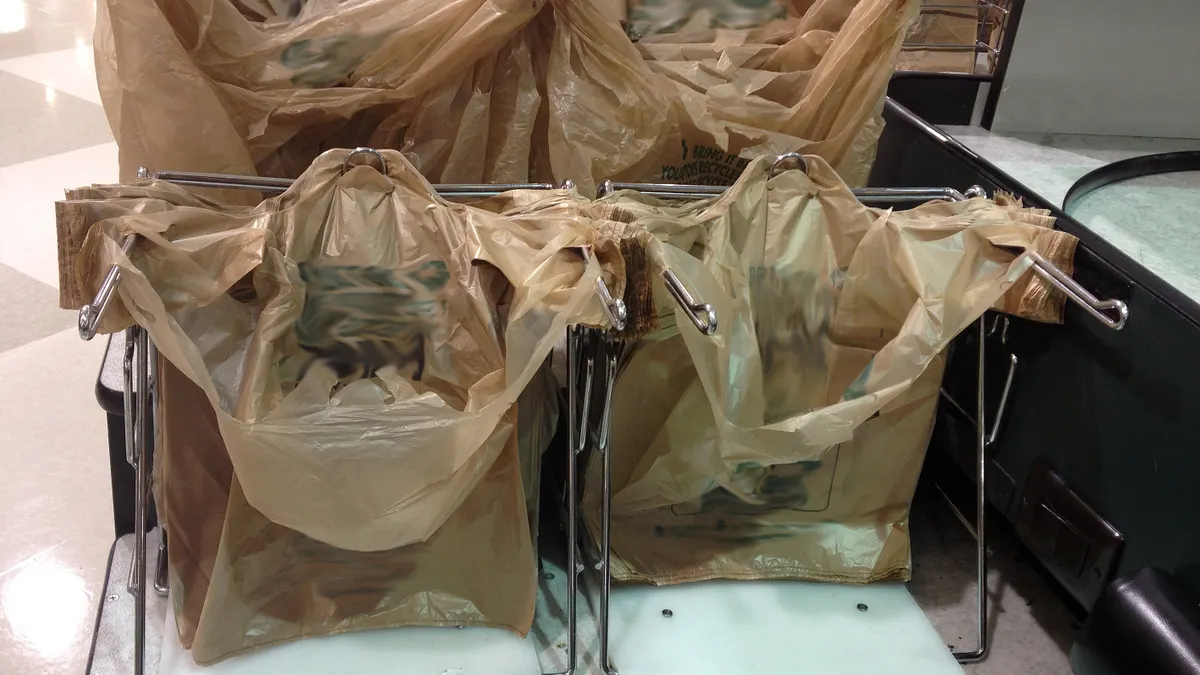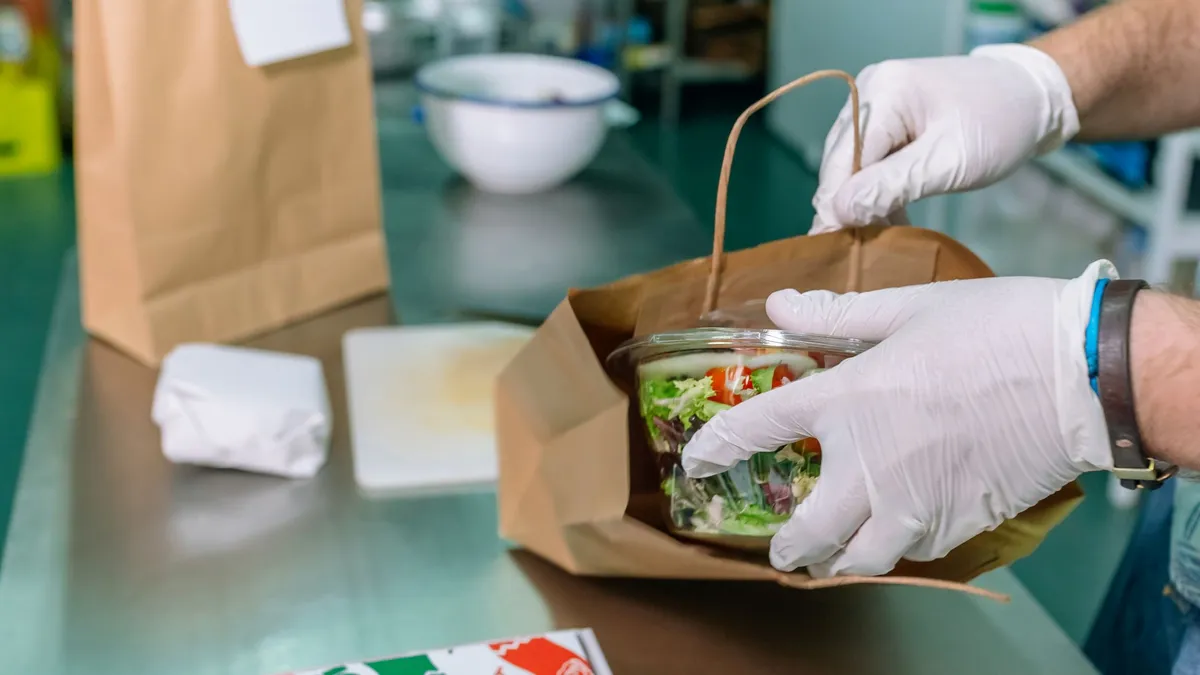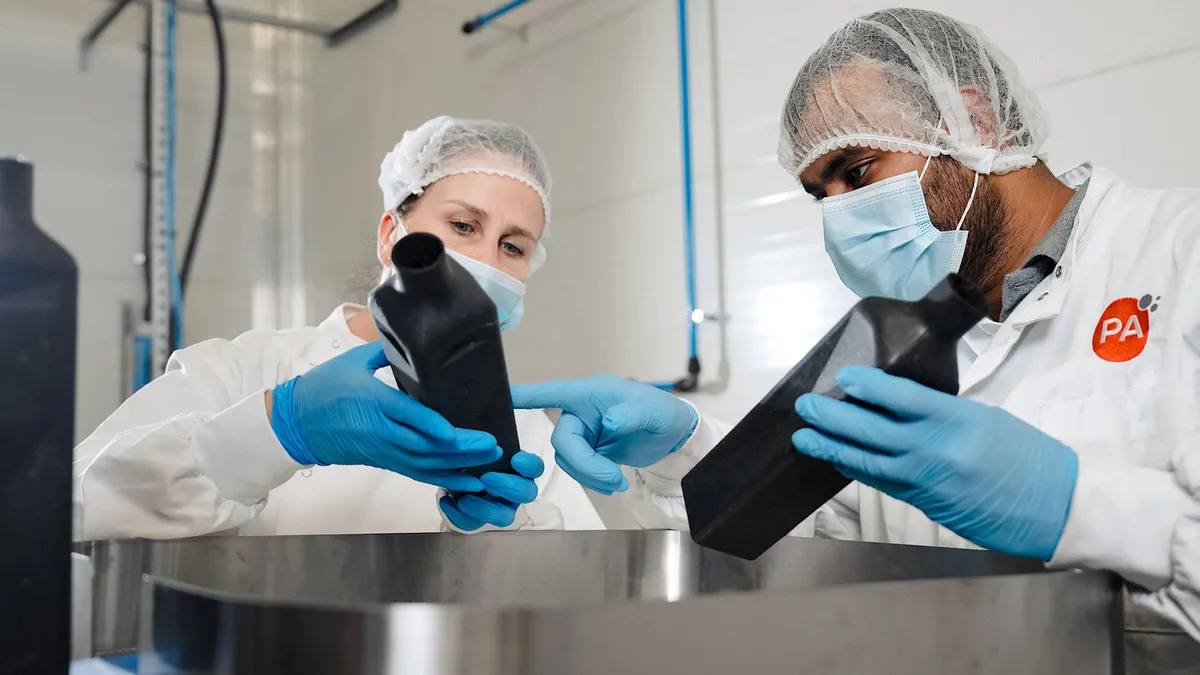Dive Brief:
- All bags — plastic, paper or reusable — come with environmental tradeoffs, Closed Loop Partners said in a white paper released Tuesday. It analyzes the impact of single-use bag policies in the U.S. on waste reduction.
- There are 12 states and 330 communities across the U.S. that have enacted legislation to reduce reliance on single-use plastic bags, noted CLP’s Center for the Circular Economy, which manages the Consortium to Reinvent the Retail Bag. The report looked closely at New Jersey’s law, which took effect in 2022. Over two years of analysis, the state experienced a 96% reduction in total bags distributed or sold per week, per store.
- Other takeaways from CLP’s policy analyses and reviews of earlier studies include that bag fees are the sole legislative tool “guaranteed to reduce the number of single-use bags used.” Still, CLP called fees “inherently regressive, but there are opportunities to create carve-outs or help customers prepare for legislation.”
Dive Insight:
Bans on single-use plastic bags have been the subject of contention and competing studies the last few years.
For example, a study last year from multiple nonprofits looked at plastic bag bans in New Jersey and Vermont, finding evidence that they reduce plastic waste and pollution and encourage reusable bag adoption. Conversely, a separate study released around the same time, backed by the American Recyclable Plastic Bag Alliance, suggested that New Jersey’s bag ban resulted in negatives with the production footprint and lifecycle of alternative bags.
The Plastics Industry Association is behind the alliance. The association did not respond to a request for comment about CLP’s new report.
Related to the alliance’s concern, CLP found that much-repeated reuse is key with reusable bags. Thicker LDPE reusable bags have a “worse environmental outcome” than single-use HDPE bags unless they are used more than six times, CLP said.
In that vein, lawmakers in California, which has a bag ban, in 2024 passed legislation to close a loophole that resulted in the proliferation of thicker plastic bags that were technically reusable, but that weren’t getting reused much.
“The rigorous analysis offers elected officials, regulators, community leaders and community stakeholders an objective summary of legislation’s impacts and potential unintended consequences on a community, enabling officials to effectively tailor legislation to their constituents and desired outcomes,” CLP said in a press release.
CLP advised that policymakers and regulators do what they can to help customers bring their own bags and create a more consistent consumer experience through uniform state or regional policy, among other recommendations.











